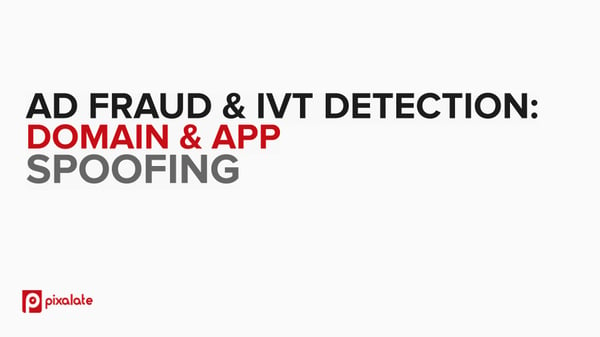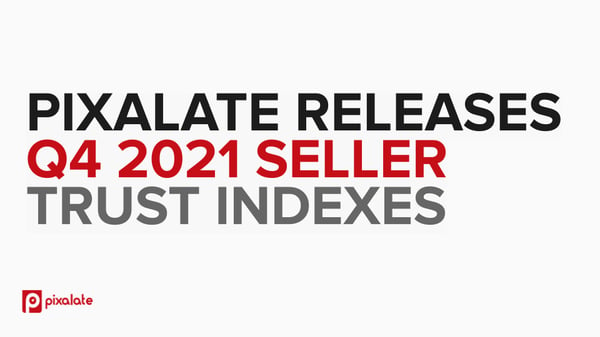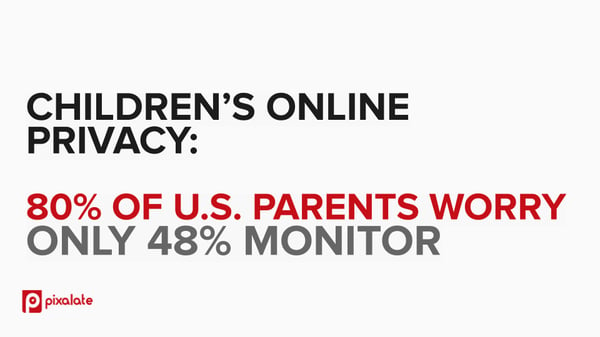
This week's review of ad fraud and privacy in the digital advertising space.

Pixalate this week wrote a blog to dive into domain and app spoofing. The Wall Street Journal recently reported that Gannett Co. provided advertisers with misrepresented domain information.
The article has generated multiple discussions in the ad tech industry — and has illuminated certain misconceptions — about ad fraud detection, specifically about domain spoofing and misrepresentation.
We always welcome discussions about the critical issue of ad fraud. This blog post responds to many of the questions we’ve seen and addresses the confusion that has been generated around this topic.

Pixalate has released the Q4 2021 Programmatic Seller Trust Indexes. Pixalate’s Seller Trust Indexes are the worldwide standard in programmatic advertising quality ratings. The indexes evaluate and rank the quality of programmatic advertising supply-side platforms (SSPs) across desktop and mobile web, mobile in-app, and Connected TV (CTV).

MediaShotz reported on Pixalate’s findings that nearly half of all child-directed apps request access to personal information.
“The report, which compared apps from Apple’s App Store and Google’s Play Store, found significantly more child-directed apps available via Apple had no detected privacy policy – despite Apple’s more rigid stance on issues such as cookies,” wrote MediaShotz.

According to AdExchanger, “During his recent State of the Union address, President Joe Biden specifically called out the need to strengthen privacy protections for kids online, and lawmakers on both sides of the aisle are pushing to revamp and update existing child-focused safety laws, such as the Children’s Online Privacy Protection Act (COPPA).”
However, some lawmakers are choosing to focus on child-safety bills that do not directly address the issue and major problem of widespread data collection and child-targeted advertising online, per AdExchanger.

According to Ad Law Access, FTC Chair Lina Khan will have the majority she needs to move forward on multiple fronts if Alvaro Bedoya is confirmed as FTC Commissioner. Khan's major and ambitious priorities for the FTC include strengthening privacy rulemakings, focusing on platforms' compliance and implementing stronger remedies in privacy cases.
*By entering your email address and clicking Subscribe, you are agreeing to our Terms of Use and Privacy Policy.
These Stories on Weekly Recaps
*By entering your email address and clicking Subscribe, you are agreeing to our Terms of Use and Privacy Policy.

Disclaimer: The content of this page reflects Pixalate’s opinions with respect to the factors that Pixalate believes can be useful to the digital media industry. Any proprietary data shared is grounded in Pixalate’s proprietary technology and analytics, which Pixalate is continuously evaluating and updating. Any references to outside sources should not be construed as endorsements. Pixalate’s opinions are just that - opinion, not facts or guarantees.
Per the MRC, “'Fraud' is not intended to represent fraud as defined in various laws, statutes and ordinances or as conventionally used in U.S. Court or other legal proceedings, but rather a custom definition strictly for advertising measurement purposes. Also per the MRC, “‘Invalid Traffic’ is defined generally as traffic that does not meet certain ad serving quality or completeness criteria, or otherwise does not represent legitimate ad traffic that should be included in measurement counts. Among the reasons why ad traffic may be deemed invalid is it is a result of non-human traffic (spiders, bots, etc.), or activity designed to produce fraudulent traffic.”

